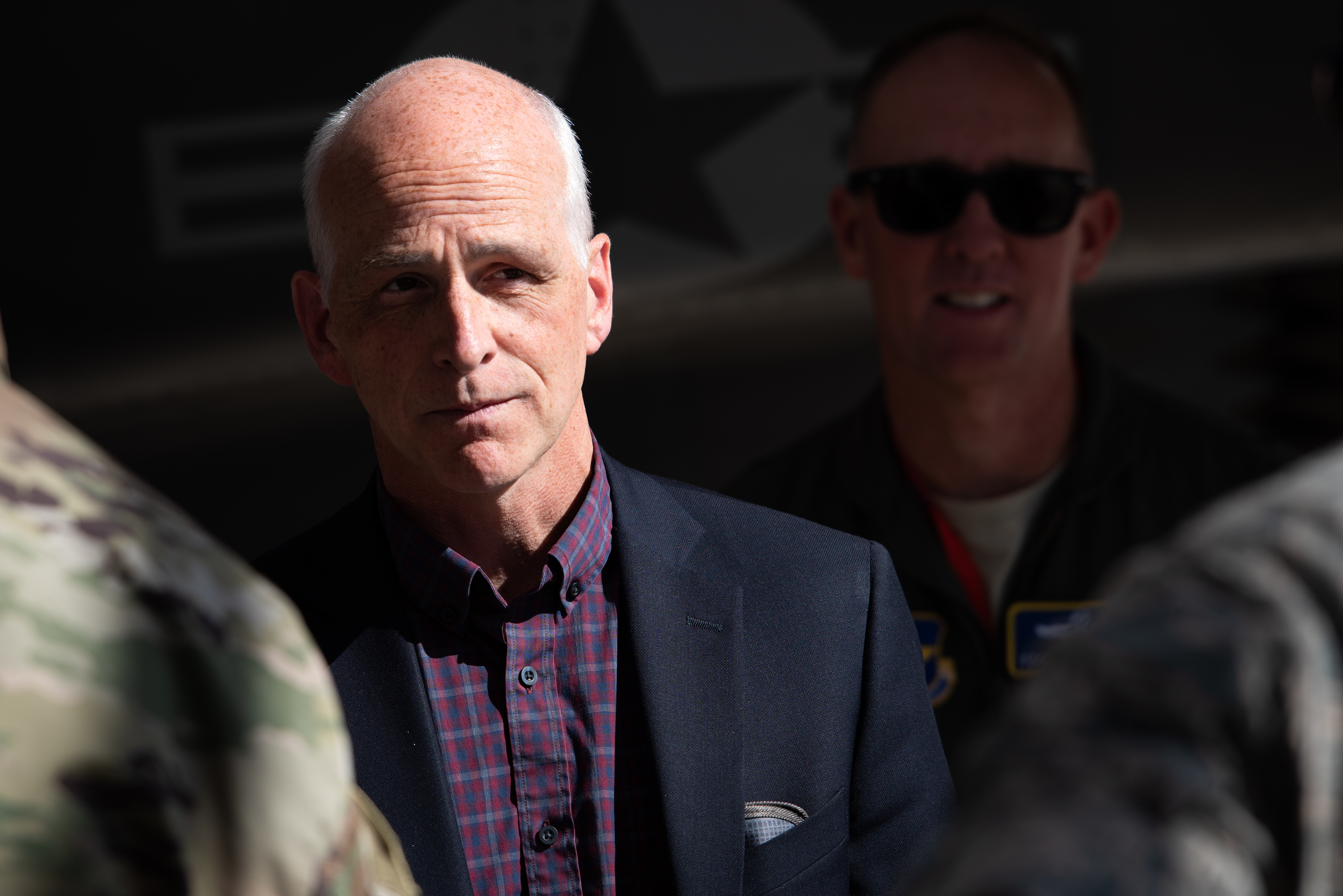
Russia’s invasion of Ukraine has increased bipartisanship support for foreign policy on Capitol Hill, reemphasized the value of alliances and partnerships and will certainly boost the upcoming Pentagon spending request, the chairman of the House Armed Services Committee said on Thursday.
Without speculating on how much the Fiscal Year 2023 defense budget request will rise, Rep. Adam Smith, (D-Wash.), said the revised request for supplemental spending for COVID-19 relief and humanitarian and other assistance to Ukraine is now $32 billion.
That request for this fiscal year was for $7 billion.
Speaking at an American Enterprise Institute forum Thursday, Smith said the upcoming budget request “will be bigger than we thought.” The invasion “made [the budget] more expensive; made it more complicated.”
Smith called the submission “probably the most important budget” in his more than 25 years in Congress because it will more clearly define the United States’ role in a changed world.
“Russia and China are trying to make the world safer for authoritarian regimes,” he said.
Washington’s response to Moscow’s aggression in Europe and Chinese bullying in the Indo-Pacific “will impact the rest of the world.”
USNI News reported last month that the top line included in the Office of Management and Budget’s pass back in late February was more than $770 billion.
Smith added the reaction in Congress to the Vladimir Putin’s attack on Ukraine is “as bipartisan a thing as I’ve seen in the last few years.”
“Putin is showing the power of brute strength” in attacking Ukraine on multiple fronts and “the limits of brute strength” and the vulnerabilities and weaknesses in the Kremlin’s military, Smith said.
Following a telephone conversation with French President Emmanuel Macron earlier Thursday, Putin insisted in a statement Russia would achieve its goals of Ukrainian neutrality and demilitarizing its neighbor. He added if Kyiv delays negotiations Russia would up its demands.
Smith said Eastern European allies, particularly, will be looking for humility in Washington’s approach to them as well as increased U.S. military presence. “Then it’s a partnership.”
Using the example of special forces training in counterterrorism the United States offered to other nations starting in 2009, Smith said, “we need to train [European and Pacific partners], make them better” at deterrence. “Deterrence is one way to keep peace in the world.”
Eastern Europeans, like those in Poland and Romania see how their lives improved after the collapse of the Soviet Union.
“Economic and political freedom work,” Smith said.
Smith welcomed German Chancellor Olaf Scholz’s announcement that Berlin was dramatically increasing its defense spending and was sending defensive arms and equipment to Ukraine.
“This is going to give us more help,” he said.
In looking at American military force posture considering the invasion, Smith said a stronger NATO also means a stronger presence in the Indo-Pacific. He said the drawdown in Central Command from Afghanistan and Iraq allow more resources to be devoted to the Indo-Pacific.
“We have to build-up those partnerships,” he said, like the technology agreement with Australia and the United Kingdom and the informal economic and security arrangement with Australia, India and Japan.





